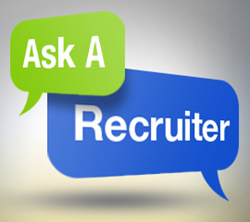Your lack of interviews could be due to what you said online years ago.

The internet is a huge and wonderful place. You can search for tips on how to fix your sink, buy a used car, and leave a review for your favorite restaurant. However, it’s important to remember that anything you say online is pretty much permanent. An angry review or a sarcastic comment from years ago could come back to haunt you later.
This is incredibly relevant to the job search. The lack of a face-to-face connection might seem to give you some degree of anonymity, but it doesn’t. Recruiters and interviewers will see what you’ve done and said online and factor that into their consideration of you as a candidate, for better or worse.
According to the HUHS Library Media Center, 45% of all hiring managers use search engines to find information on people who applied for jobs. And, 63% said that something on a job seeker’s social media site caused them to not offer them a job.
And the best way to avoid that situation? Not doing anything bad in the first place. But what exactly is “bad” when it comes to the internet and your job search? We’ve got you covered.
Don’t Complain on Social Media
If you had food poisoning during a recent trip to Sherry’s Crab Emporium, it’s fine and dandy to let them know on social media or a review site. However, avoid ranting or using any rude language. Be concerned and polite. That review might come up when you’re being considered for a great job, and it could be the deciding factor that throws you out as a candidate.
Avoid complaining about a boss or co-worker on any of your pages. Even if you aren’t social media friends with these individuals, it’s still possible they could see your comments through a shared contact. And if you’re applying for a new position, your potential employer could write you off as a temperamental employee.
Don’t Breach the Line Between Business and Personal
Social media can be a great networking tool. However, don’t add interviewers on any social platform. Keep the personal and professional separate. Your online interactions with the company should always be strictly professional.
Avoid contacting companies you’ve applied or interviewed with via social media. A quick question to your interviewer via email is fine, but writing a post to a company’s Facebook page is not. The person in charge of the Facebook page most likely has nothing to do with your interview. And, if you post directly to the company’s Twitter or Facebook feed, you’re letting everybody else see your conversation.
Don’t bother your contacts on social media. Don’t message them just because you can. Avoid doing anything that could be seen as begging for a job. Realize that there is a line between social media for business and social media for personal use.
DO Be the Best Version of Yourself
When you want to impress someone in the real world, you bring your A game. You put on a nice suit, smile, and take care to be as polite as possible.
The internet should be no different. If your name is in any way attached, realize that whatever you say or do is there to stay. Don’t post pictures of yourself partying or say anything overtly political. Keep complaints to yourself, and don’t use any profanity.
To keep your personal life private, it’s important to adjust your privacy settings. Although the method for this will change depending on the platform, you usually can adjust what the general public (non-friends/followers) see on social media through something on the site’s “settings” tab.
Don’t Forget to Log-Out
The internet is a great place, but nothing replaces the power of a true one-on-one, face-to-face interaction. Go the extra mile and deliver your resume and cover letter to a business in person.
If you have questions, pick up the phone. Call the office and schedule an in-person appointment to meet with someone and discuss your concerns politely and succinctly.
Whenever an interview is over, send a handwritten thank you card in the mail. That little bit of extra effort goes a long way.
In all that you do, be quick, polite, and kind. That’s something truly memorable.
Have questions about how to behave online? Let us know in the comments below!






